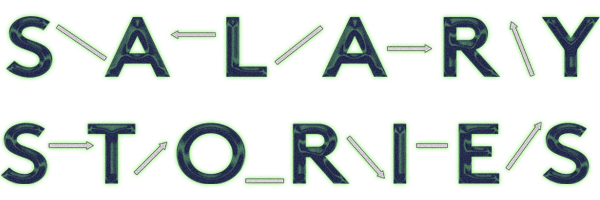
I Went 7 Years Without A Promotion — & It Taught Me How To Negotiate
ADVERTISEMENT
In our series Salary Stories, women with long-term career experience open up about the most intimate details of their jobs: compensation. It’s an honest look at how real people navigate the complicated world of negotiating, raises, promotions, and job loss, with the hope it will give young women more insight into how to advocate for themselves — and maybe take a few risks along the way.
Been in the workforce for at least eight years and interested in contributing your salary story? Submit your information here.
Previously, we talked to a marketing manager in Jersey City, an art director in New York, and an illustrator in Austin.
Age: 31
Current Location: Long Island, NY
Current Industry & Title: Consumer Goods Manufacturing, Senior Product Specialist
Starting Salary: $30,000
Current Salary: $71,000
Number Of Years Employed: 8
Biggest Salary Jump: From $30,000 to $45,000 in 2011
Biggest Salary Drop: None
Current Location: Long Island, NY
Current Industry & Title: Consumer Goods Manufacturing, Senior Product Specialist
Starting Salary: $30,000
Current Salary: $71,000
Number Of Years Employed: 8
Biggest Salary Jump: From $30,000 to $45,000 in 2011
Biggest Salary Drop: None
Biggest Salary Negotiation Regret: "I regret not having been as clear with myself about what I wanted from the negotiation, aside from a certain dollar amount. Earlier in my career, my direct adviser was undergoing a transition, and so I knew a compensation conversation was coming. I saw this opportunity as one of the few I might have to get a bump in salary. But I didn’t really think about, or touch on, what other priorities existed for me.
"In retrospect, I realize that compensation is much more than just a dollar amount — it’s vacation time, when you’re working, how you’re working. My employer was willing to play ball, and had I considered ahead of time, I would have addressed the conversation more holistically and come in with a wider array of things I wanted to get out of the negotiation, such as additional benefits. Instead, I intimidated myself out of talking about the full list of options that I could have addressed."
Best Salary-Related Advice: "Just bite your lip and negotiate — employers don’t think emotionally about this process, and neither should you. Your work is a product that has the potential to bring value to an organization; you should get comfortable with the idea that you can (and should!) leverage this value.
"It took me a long time to realize this, which I think was because I wanted to view my contributions as a singular thing that I could offer, whereas in reality, I fit into a bigger equation. Your value to a company should be something you reflect on, knowing it can also depend on timing and the direction your company is headed at the time. No matter what, it’s good to go in with a clear sense of what you want and make sure that’s in line with what they can offer."
ADVERTISEMENT